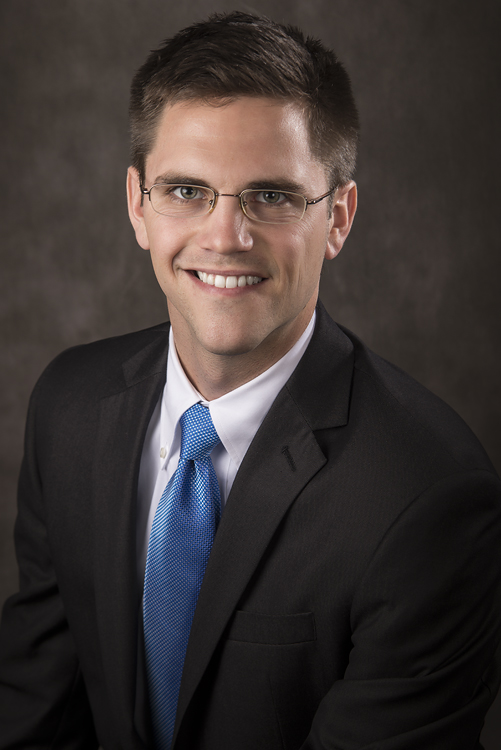Rise of ‘Financial Wellness’ Is Important for Retirement Success
 It’s hardly a secret—Americans are lacking in financial education, and it’s killing their retirement prospects. The solution lies in instituting programs similar to successful health and wellness programs instituted a generation ago, which have led to happier, healthier, more productive employees.
It’s hardly a secret—Americans are lacking in financial education, and it’s killing their retirement prospects. The solution lies in instituting programs similar to successful health and wellness programs instituted a generation ago, which have led to happier, healthier, more productive employees.
CHARLOTTE, NC - 09/12/2016 — By now it’s cliché—it isn’t that Americans plan to fail when it comes to retirement, it’s that they fail to plan.
The numbers aren’t encouraging. According to the Economic Policy Institute, a Washington D.C.-based think tank, the median working-age couple has only $5,000 in retirement savings. (1)
Those attempting to diligently save aren’t much better off. Boston-based investment behemoth Fidelity revealed that the average account balance in 2015 in the 401(k) plans it administers was slightly less than $85,000, and at the time trending downward. (2)
With many financial advisors recommending $1 million at a minimum for retirement (a figure driven by greater lifestyle expectations and longer lifespans), it’s easy to see the trouble in which most individuals find themselves.
Part of the problem, experts say, is a low rate of financial literacy among the public at large, yet it’s something with which employers could help. Corporate health and wellness programs have led to happier, healthier and more productive employees—resulting in a reduction in absenteeism and greater productivity in recent years. Such a model could be repeated with financial health and wellness, they add. Indeed, the need is there, with 60 percent of employees listing “saving for retirement” as a major source of stress, according to a new report from the International Foundation of Employee Benefit Plans (IFEBP) in Brookfield, Wisconsin. (3)
While many Americans lack financial and investing education, they at least understand the importance of the concept itself.
Four Seasons Financial Education (FSFE) recently found that employees better understood their 401(k) investment options when a workplace financial wellness program was available to them.
Employees were given five categories, from "not at all" to "extremely well" to identify their level of understanding. When no workplace financial wellness program was offered, only 14 percent of employees rated themselves as "extremely well."
However, those with workplace financial wellness programs increased to 22 percent in the "extremely well" category. (4)
For these reasons, financial education experts say it’s critical for employees to inquire about financial wellness initiatives with their employers, and for individual investors to do the same with their financial advisors.
“Outliving one’s assets and losing money in the market are by far the two biggest concerns we hear when meeting with potential clients,” says Austin Powell, co-founder of Blue Financial, Inc. in Charlotte, North Carolina, which offers an informational Retirement Playbook. “It’s completely contradictory to how they’re invested. When we review what they’ve done previously, we find that 65-year-olds still have 90 percent of their money in the market.”
It’s an education issue; one that’s reflecting negatively on the financial services industry as a whole.
“When clients are confused, they become skeptical, and it hurts the overall credibility of the industry,” Alex Calott, Powell’s partner at Blue Financial, adds. “Some of that has to be put on the financial professionals. Education must come first in order to implement a strategy with which everyone is comfortable.”
Employing a construction metaphor, Powell says education issues usually revolve around risk and return, explaining, “It’s the foundation, the walls and the roof. The foundation is protected income, the walls are conservative, growth-oriented investments and the roof is aggressive growth vehicles. It’s how the three parts of the financial house come together and work in harmony that determines the success of the overall strategy. But it all starts with education and having a purpose.”
___________________________________________________
1 “401(k)s have left the overwhelming majority of Americans unprepared for retirement.” Epi.org. March 3, 2016.
2 “Fidelity First Quarter Retirement Savings Analysis: Account Balances Lower, Long-Term Savers See An Increase.” Fidelity.com. April 29, 2016.
3 “Employees’ Financial Issues Affect Their Job Performance.” Shrm.org. April 29, 2016.
4 “Does 401k ‘Financial Wellness’ (Whatever That Means) Really Work?” 401specialistmag.com. June 8, 2016.
John Sullivan contributed to this article.
Investment Advisory Services offered through Global Financial Private Capital, LLC, an SEC Registered Investment Adviser.
Global Financial Private Capital (GFPC) has no affiliation with the information represented here andthe views expressed do not necessarily reflect the views of GFPC. GFPC makes no representations or warranties about the accuracy, reliability, completeness or timeliness of the content and does not recommend or endorse any specific information contained therein.
For more information, please visit http://BlueFinancialinc.com
Media Contacts:
Company Name: Blue Financial, Inc.Full Name: Austin Powell, Co-Founder, Investment Adviser Representative, Insurance Professional
Phone: 704-496-2688
Email Address: Send Email
Website: http://BlueFinancialinc.com